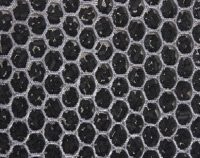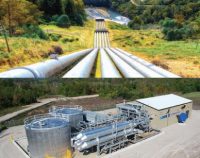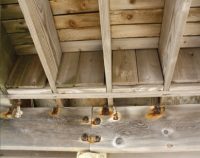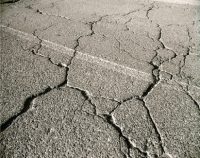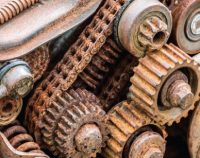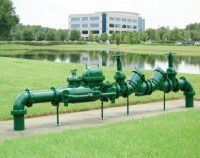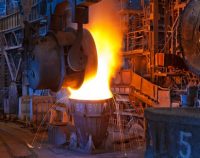Showing 1–20 of 21 results
Fuel Cell Technology and Performance: 4 PDH
$24.00 Add to cartIn this course the student will understand the fundamental principles, design, operation, and performance characteristics of various fuel cell technologies, including their system components, fuel processing, and real-world applications.Instructor: Seth Grablow, PESPECIFIC KNOWLEDGE OR SKILL OBTAINED
This course teaches the following specific knowledge and skills:
- Explain fuel cell electrochemical operation principles.
- Compare different fuel cell types and characteristics.
- Evaluate performance parameters and efficiency losses.
- Analyze system components and balance-of-plant requirements.
- Assess modeling approaches and system optimization strategies.
- Interpret fuel cell application data and deployment scenarios.
CERTIFICATE OF COMPLETION
You will be able to immediately print a certificate of completion after passing a 20 question multiple-choice quiz. The quiz can be retaken unlimited times until a passing grade of 70% or better is earned. This course satisfies four (4) hours of professional development (PDH).
Preview CourseClick “Preview Course” to view prior to purchaseClick “Add to Cart” to purchaseGeothermal Heat Pump Systems: 4 PDH
$24.00 Add to cartIn this course the student will understand how geothermal (geoexchange) heat pump systems function, including heat transfer mechanisms, system components, ground loop configurations, performance considerations, and environmental and economic impacts.Instructor: Seth Grablow, PESPECIFIC KNOWLEDGE OR SKILL OBTAINED
This course teaches the following specific knowledge and skills:
- Describe geothermal system components and heat transfer processes
- Compare open- and closed-loop ground heat exchangers
- Analyze thermal conductivity and drilling impacts on loop sizing
- Evaluate system configurations for building-specific needs
- Calculate system payback and operating cost savings
- Interpret case studies and performance outcomes of real installations
CERTIFICATE OF COMPLETION
You will be able to immediately print a certificate of completion after passing a 20 question multiple-choice quiz. The quiz can be retaken unlimited times until a passing grade of 70% or better is earned. This course satisfies four (4) hours of professional development (PDH).
Introduction to Composite Materials: 3 PDH
$18.00 Add to cartIn this course the student will understand the fundamental concepts, structures, classifications, and applications of composite materials. They will learn how different fibre and matrix combinations influence properties, and they will grasp the benefits and limitations of thermoset and thermoplastic composites as well as reinforcement mechanisms.Instructor: Seth Grablow, PESPECIFIC KNOWLEDGE OR SKILL OBTAINED
This course teaches the following specific knowledge and skills:
- Define composite materials and their constituent components.
- Compare thermoset and thermoplastic matrices.
- Classify common fibre reinforcements and their uses.
- Describe composite processing and manufacturing techniques.
- Analyze mechanical properties of composites.
- Identify applications across multiple engineering sectors.
CERTIFICATE OF COMPLETION
You will be able to immediately print a certificate of completion after passing a 15 question multiple-choice quiz. The quiz can be retaken unlimited times until a passing grade of 70% or better is earned. This course satisfies three (3) hours of professional development (PDH).
Preview CourseClick “Preview Course” to view prior to purchaseClick “Add to Cart” to purchaseCarbon Absorption of Volatile Organic Compounds: 3 PDH
$18.00 Add to cartCarbon adsorption is used in air pollution control to remove volatile organic compounds (VOCs) from low to medium concentration gas streams, when stringent outlet concentration must be met and/or recovery of the VOC is desired. This course covers the types of adsorbers, adsorption theory, and design procedures for carbon adsorption equipment.Instructor: Seth Grablow, PECarbon adsorption is used in air pollution control to remove volatile organic compounds (VOCs) from low to medium concentration gas streams, when stringent outlet concentration must be met and/or recovery of the VOC is desired. This course covers the types of adsorbers, adsorption theory, and design procedures for carbon adsorption equipment.
SPECIFIC KNOWLEDGE OR SKILL OBTAINED
This course teaches the following specific knowledge and skills:
- The types of carbon adsorption equipment and which are in most common use
- Define an adsorption isotherm and be able to recognize the equation for the Freundlich isotherm
- Adsorber sizing parameters
- Make adsorption and desorption time calculations
- Procedures for estimating carbon requirements
- Cost estimation procedures for carbon adsorption systems
CERTIFICATE OF COMPLETION
You will be able to immediately print a certificate of completion after passing a 20 question multiple-choice quiz. The quiz can be retaken unlimited times until a passing grade of 70% or better is earned. This course satisfies 3 professional development hours (PDH) of continuing education.
Preview CourseClick “Preview Course” to View Prior to PurchaseClick “Add to Cart” to Purchase and Access QuizCoating Types and Characteristics of Metals: 3 PDH
$18.00 Add to cartIn this course the student will understand the characteristics and applications of various industrial coatings and metal finishes. Instructor: Seth Grablow, PESPECIFIC KNOWLEDGE OR SKILL OBTAINED
This course teaches the following specific knowledge and skills:
- Discuss various metal coating types and characteristics
- Explain film-forming mechanisms and binders
- Understand driers, pigments, solvents, and miscellaneous additives
- Explain zinc-rich coatings and VOCs
- Understand powder coating, thermal sprays, galvanizing, etc.
CERTIFICATE OF COMPLETION
You will be able to immediately print a certificate of completion after passing a fifteen (15) question multiple-choice quiz. The quiz can be retaken unlimited times until a passing grade of 70% or better is earned. This course satisfies three (3) professional development hours (PDH) of continuing education.
Preview CourseClick “Preview Course” to View Prior to PurchaseClick “Add to Cart” to Purchase and Access QuizCompressed Air Energy Storage and Pumped Storage Hydropower Concepts: 4 PDH
$24.00 Add to cartIn this course the student will understand understand current Compressed Air Energy Storage (CAES) and Pumped Storage Hydropower (PSH) technologies and explore future advances of this technology by examining the feasibility of a variety of different concepts. Instructor: Juan Pesante, PESPECIFIC KNOWLEDGE OR SKILL OBTAINED
This course teaches the following specific knowledge and skills:
- Understand current CAES and PSH technologies and their challenges
- Discuss bulk energy storage applications and their requirements
- Discuss novel CAES technologies
- Discuss novel PSH technologies
- Explain the feasibility of these novel technologies
- Discuss technological gaps and barriers and further R&D needs
CERTIFICATE OF COMPLETION
You will be able to immediately print a certificate of completion after passing a 20 question multiple-choice quiz. The quiz can be retaken unlimited times until a passing grade of 70% or better is earned. This course satisfies four (4) hours of professional development (PDH).
Preview CourseClick “Preview Course” to view prior to purchaseClick “Add to Cart” to purchaseConcepts for Advanced Electrical Knowledge & Practical Troubleshooting: 8 PDH
$40.00 Add to cartIn this course, applicable to all professional engineering backgrounds, the student will understand the concepts of electricity and mechanism and design of electronics. They will understand how electrical components work from theory to design to the operation of common industrial circuits with tips for practical troubleshooting.Instructor: Juan Pesante, PESPECIFIC KNOWLEDGE OR SKILL OBTAINED
This course teaches the following specific knowledge and skills:
- Discuss the concepts of electricity & electronic theory
- Understand electromagnetism and electromotive force
- Understand current, voltage, and resistance in circuits
- Explain DC & AC circuit analysis
- Discuss capacitance and inductance
- Understand DC & AC measuring instruments and concepts
- Explain circuit analysis and troubleshooting circuits
CERTIFICATE OF COMPLETION
You will be able to immediately print a certificate of completion after passing a 30 question multiple-choice quiz. The quiz can be retaken unlimited times until a passing grade of 70% or better is earned. This course satisfies eight professional development hours (PDH) of continuing education.
Preview CourseClick “Preview Course” to View Prior to PurchaseClick “Add to Cart” to Purchase and Access QuizCorrosion Protection for Metal Fasteners in Coastal Areas: 3 PDH
$18.00 Add to cartIn this online course a student will understand material design and selection of metal fasteners and connectors on structures in coastal areas for increased corrosion-resistance.Instructor: Raymond Bosek, PESPECIFIC KNOWLEDGE OR SKILL OBTAINED
This course teaches the following specific knowledge and skills:
- Discuss the importance of using corrosion-resistant metal connectors and fasteners in coastal areas
- Discuss regulations and codes in corrosion resistance material selection for fasteners
- Explain the causes of corrosion in coastal areas
- Understand types of corrosion-resistant metal connectors and fasteners
- Explain best practices for corrosion resistance
CERTIFICATE OF COMPLETION
You will be able to immediately print a certificate of completion after passing a fifteen (15) question multiple-choice quiz. The quiz can be retaken unlimited times until a passing grade of 70% or better is earned. This course satisfies three (3) continuing education hour (CEH)/professional development hour (PDH) of continuing education.
Preview CourseClick” Preview Course” to View Prior to PurchaseClick “Add to Cart” to Purchase and Access QuizDesign and Development of Hybrid Power Plants: 4 PDH
$24.00 Add to cartIn this course the student will understand the hybrid power plant and the necessary design and planning details required to ensure reliable and efficient means for power production. Instructor: Juan Pesante, PESPECIFIC KNOWLEDGE OR SKILL OBTAINED
This course teaches the following specific knowledge and skills:
- Understand the hybrid power plant
- Discuss hybrid power plant resources and market opportunities
- Discuss plant design and optimization
- Discuss plant control and operation
- Explain hybrid power plant market and technology challenges
CERTIFICATE OF COMPLETION
You will be able to immediately print a certificate of completion after passing a 20 question multiple-choice quiz. The quiz can be retaken unlimited times until a passing grade of 70% or better is earned. This course satisfies four (4) hours of professional development (PDH).
Preview CourseClick “Preview Course” to view prior to purchaseClick “Add to Cart” to purchaseDeterioration of Concrete: 2 PDH
$12.00 Add to cartIn this course, the student will review Chapter 3, Causes of Distress and Deterioration of Concrete from Engineer Manual (EM) 1110-2-2002, “Engineering and Design – Evaluation and Repair of Concrete Structures” published by the U.S. Army Corp of Engineers (issued 30 June 1995). This course is most relevant to engineers wishing to attain knowledge on the most common causes of problems in concrete. The course also provides a brief description of the basic mechanism of each common problem, a description of the typical symptoms that would be observed during a visual inspection, and suggests preventative methods or techniques to prevent further damage.Instructor: Raymond Bosek, PEA basic understanding of the underlying causes of concrete deficiencies is essential to performing meaningful evaluations which lead to the proper selection of the method or technique used to successfully repair concrete. Symptoms or observations of a deficiency must be differentiated from the actual cause of the deficiency, and it is imperative that causes and not symptoms be addressed in repairs. Deterioration of concrete is an extremely complex subject since, in most cases, the damage detected will be the result of more than one mechanism.
In this course, the student will review Chapter 3, Causes of Distress and Deterioration of Concrete from Engineer Manual (EM) 1110-2-2002, “Engineering and Design – Evaluation and Repair of Concrete Structures” published by the U.S. Army Corp of Engineers (issued 30 June 1995). This course is most relevant to engineers wishing to attain knowledge on the most common causes of problems in concrete. The course also provides a brief description of the basic mechanism of each common problem, a description of the typical symptoms that would be observed during a visual inspection, and suggests preventative methods or techniques to prevent further damage.
SPECIFIC KNOWLEDGE OR SKILL OBTAINED
This course teaches the following specific knowledge and skills:
- Common causes of concrete deterioration
- Symptoms of concrete distress and deterioration that can be found during visual inspections
- Preventative measures to reduce or eliminate further concrete degradation.
CERTIFICATE OF COMPLETION
You will be able to immediately print a certificate of completion after passing a 10 question multiple-choice quiz. The quiz can be retaken unlimited times until a passing grade of 70% or better is earned. This course satisfies 2 professional development hours (PDH) of continuing education.
Preview CourseClick” Preview Course” to View Prior to PurchaseClick “Add to Cart” to Purchase and Access QuizDistressed Pavements Identification: 3 PDH
$18.00 Add to cartThis course enables the student to understand, evaluate, and determine which type of pavement distress is taking place on roadways and paved surfaces. The student will learn how to identify different types of pavement distresses and , severity levels, means to measure the distresses and methods to document.Instructor: Raymond Bosek, PESPECIFIC KNOWLEDGE OR SKILL OBTAINED
This course teaches the following specific knowledge and skills:
- Identifying distresses in different surfaces
- Understanding and identifying the severity levels
- How to measure the distresses
- Methods to document /li>
CERTIFICATE OF COMPLETION
You will be able to immediately print a certificate of completion after passing a 15 question multiple-choice quiz. The quiz can be retaken unlimited times until a passing grade of 70% or better is earned. This course satisfies three (3) professional development hours (PDH) of continuing education.
Preview CourseClick “Preview Course” to View Prior to PurchaseClick “Add to Cart” to Purchase and Access QuizElectrical Storage Guide for Electrical Engineers: 5 PDH
$30.00 Add to cartThis course provides a thorough overview of current electrical storage technologies including batteries, flywheels, compressed air energy storage (CAES), and pumped storage hydropower (PSH) and is a how-to guide for engineers to aid in the selection, procurement, installation, and/or operation of stationary energy storage systems in today’s electric grid. Instructor: Juan Pesante, PESPECIFIC KNOWLEDGE OR SKILL OBTAINED
This course teaches the following specific knowledge and skills:
- Discuss electricity storage services and benefits
- Understand various forms of current electric storage technologies
- Explain advantages/disadvantages of current electric storage technologies
- Discuss the methodology of evaluating electricity storage
- Discuss storage systems procurement and installation
CERTIFICATE OF COMPLETION
You will be able to immediately print a certificate of completion after passing a twenty (20) question multiple-choice quiz. The quiz can be retaken unlimited times until a passing grade of 70% or better is earned. This course satisfies five (5) professional development hours (PDH) of continuing education.
Preview CourseClick “Preview Course” to View Prior to PurchaseClick “Add to Cart” to Purchase and Access QuizElectrification-Power System Evolution and Infrastructure Development: 5 PDH
$30.00 Add to cartIn this course the student will understand Electrification, the shift from non-electric to electric sources of energy at the point of final consumption, and an analysis of the potential impacts of widespread electrification on the evolution of the U.S. electricity system. This course follows the guide: Electrification Futures Study: Scenarios of Power System Evolution and Infrastructure Development for the United States, published by the National Renewable Energy Laboratory. Instructor: Juan Pesante, PESPECIFIC KNOWLEDGE OR SKILL OBTAINED
This course teaches the following specific knowledge and skills:
- Understand Electrification and what it means for the future
- Discuss end-use technology variations of the U.S. electrical system infrastructure
- Discuss variations on cost, energy consumption, and emissions
- Discuss demand-side flexibility variations
- Explain electric sector variations on system evolution, costs, energy consumption, and emissions
CERTIFICATE OF COMPLETION
You will be able to immediately print a certificate of completion after passing a 20 question multiple-choice quiz. The quiz can be retaken unlimited times until a passing grade of 70% or better is earned. This course satisfies five (5) hours of professional development (PDH).
Preview CourseClick “Preview Course” to view prior to purchaseClick “Add to Cart” to purchaseEnergy Storage Technology Cost and Performance: 4 PDH
$24.00 Add to cartIn this course the student will understand a variety of different energy storage technologies and explore their advantages and disadvantages with an in-depth cost and performance comparison. This course follows the report: Energy Storage Technology and Cost Characterization Report, published by the U.S. Department of Energy (DOE). Instructor: Juan Pesante, PESPECIFIC KNOWLEDGE OR SKILL OBTAINED
This course teaches the following specific knowledge and skills:
- Understand energy storage deployments by technology
- Discuss cost and performance metrics of different technologies
- Discuss in-depth parameters of each energy storage technologies
- Explain annualized cost and comparison of the technologies
CERTIFICATE OF COMPLETION
You will be able to immediately print a certificate of completion after passing a 20 question multiple-choice quiz. The quiz can be retaken unlimited times until a passing grade of 70% or better is earned. This course satisfies four (4) hours of professional development (PDH).
Preview CourseClick “Preview Course” to view prior to purchaseClick “Add to Cart” to purchaseEngineer’s Guide to Corrosion-Causes, Protection and Control: 8 PDH
$40.00 Add to cartIn this course the student will understand the process of corrosion on metals from its causes and effects into protection and control. The student will understand corrosion on a variety of metals and methods to mitigate and control corrosion over the life of a material. Instructor: Seth Grablow, PESPECIFIC KNOWLEDGE OR SKILL OBTAINED
This course teaches the following specific knowledge and skills:
- Discuss environmental factors that affect corrosion
- Understand the eight major forms of corrosion
- Discuss corrosion characteristics and properties of various common metals
- Explain corrosion protection and methods of control
- Discuss monitoring of corrosion and available inspection technologies
- Understand the electrochemistry, kinetics, and thermodynamics of the corrosion process
CERTIFICATE OF COMPLETION
You will be able to immediately print a certificate of completion after passing a 30 question multiple-choice quiz. The quiz can be retaken unlimited times until a passing grade of 70% or better is earned. This course satisfies eight professional development hours (PDH) of continuing education.
Preview CourseClick “Preview Course” to View Prior to PurchaseClick “Add to Cart” to Purchase and Access QuizEngineer’s Guide to Cross Connection Control: 4 PDH
$24.00 Add to cartIn this online course a student will understand cross connection risks, review real case studies of cross connection mishaps, and understand the various methods and procedures to mitigate cross connection hazards.Instructor: Seth Grablow, PESPECIFIC KNOWLEDGE OR SKILL OBTAINED
This course teaches the following specific knowledge and skills:
- Understand the health hazards of cross-connections
- Discuss various real-life mishaps
- Discuss cross-connections risk mitigation
- Explain programs for cross-connection control and backflow prevention
- Understand common cross-connection scenarios and methods to mitigate
CERTIFICATE OF COMPLETION
You will be able to immediately print a certificate of completion after passing a twenty (20) question multiple-choice quiz. The quiz can be retaken unlimited times until a passing grade of 70% or better is earned. This course satisfies four (4) continuing education hour (CEH)/professional development hour (PDH) of continuing education.
Preview CourseClick” Preview Course” to View Prior to PurchaseClick “Add to Cart” to Purchase and Access QuizFire Protection System Design: 3 PDH
$18.00 Add to cartThis three (3) hour course overviews standards to design and build an environment for building occupants that is reasonably safe from fire and products of combustion as well as how to provide a reasonable level of building usability and property protection from the effects of fire and products of combustion.Instructor: Seth Grablow, PEThis three (3) hour course overviews standards to design and build an environment for building occupants that is reasonably safe from fire and products of combustion as well as how to provide a reasonable level of building usability and property protection from the effects of fire and products of combustion.
SPECIFIC KNOWLEDGE OR SKILL OBTAINED
This course teaches the following specific knowledge and skills:
- Become familiar and identify fire protection engineering design criteria
- Discuss the various building fire protection devices and installation standards
- Examine adequacy for water supply and the various methods and standards to implement sprinkler systems
- Understand fire extinguishing systems – the how, what, and where to install
- Identify fire alarm system design guidlines and installation standards
CERTIFICATE OF COMPLETION
You will be able to immediately print a certificate of completion after passing a 15 question multiple-choice quiz. The quiz can be retaken unlimited times until a passing grade of 70% or better is earned. This course satisfies three (3) continuing education hour (CEH)/professional development hour (PDH) of continuing education.
Preview CourseClick” Preview Course” to View Prior to PurchaseClick “Add to Cart” to Purchase and Access QuizFundamentals of Metals: 5 PDH
$30.00 Add to cartThe course provides an understanding of the structure and properties of metals, stress mechanisms, failure modes and the characteristics determine their usefulness for a specific application. Often, materials are subject to variable forces (loads). The engineer calculates these forces to establish the service that can be expected and material scientists experiment to determine how materials deform (elongate, compress, and twist) or break as a function of applied load, time, temperature, and other conditions.Instructor: Seth Grablow, PEThe course provides an understanding of the structure and properties of metals, stress mechanisms, failure modes and the characteristics determine their usefulness for a specific application. Often, materials are subject to variable forces (loads). The engineer calculates these forces to establish the service that can be expected and material scientists experiment to determine how materials deform (elongate, compress, and twist) or break as a function of applied load, time, temperature, and other conditions.
SPECIFIC KNOWLEDGE OR SKILL OBTAINED
This course teaches the following specific knowledge and skills:
- Mechanical properties of metals
- Structure of metals and how those structures are affected by various processes
CERTIFICATE OF COMPLETION
You will be able to immediately print a certificate of completion after passing a 20 question multiple-choice quiz. The quiz can be retaken unlimited times until a passing grade of 70% or better is earned. This course satisfies 5 professional development hours (PDH) of continuing education.
Preview CourseClick “Preview Course” to View Prior to PurchaseClick “Add to Cart” to Purchase and Access QuizHazardous Waste Identification: 2 PDH
$12.00 Add to cartThis course covers hazardous waste regulated by the EPA under the Resource Conservation and Recovery Act (RCRA), starting with determining whether what waste is considered a solid waste according to the RCRA regulations and moving on to determining if it fits one of the RCRA requirements for being a hazardous waste.Instructor: Raymond Bosek, PEThis course covers hazardous waste regulated by the EPA under the Resource Conservation and Recovery Act (RCRA), starting with determining whether what waste is considered a solid waste according to the RCRA regulations and moving on to determining if it fits one of the RCRA requirements for being a hazardous waste.
SPECIFIC KNOWLEDGE OR SKILL OBTAINED
This course teaches the following specific knowledge and skills:
- Fundamentals of the hazardous waste identification process
- Definition of hazardous waste & solid waste as used by RCRA
- How to identify listed hazardous wastes and their characteristics
- Interpretation of the mixture and 'derived-from' rules
- Interpretation of the contained-in policy
CERTIFICATE OF COMPLETION
You will be able to immediately print a certificate of completion after passing a 16 question multiple-choice quiz. The quiz can be retaken unlimited times until a passing grade of 70% or better is earned. This course satisfies 2 professional development hours (PDH) of continuing education.
Preview CourseClick “Preview Course” to View Prior to PurchaseClick “Add to Cart” to Purchase and Access QuizProcess Design for Conversion of Biomass to Biofuels: 4 PDH
$24.00 Add to cartIn this course you the student will understand the motivation, process, design, and cost of converting biomass into biofuel. The focus of this course is to find a plausible pathway to convert algal carbohydrates and lipids to fuel and to minimize cost during production.Instructor: Raymond Bosek, PEIn this course you the student will understand the motivation, process, design, and cost of converting biomass into biofuel. The focus of this course is to find a plausible pathway to convert algal carbohydrates and lipids to fuel and to minimize cost during production.SPECIFIC KNOWLEDGE OR SKILL OBTAINED
This course teaches the following specific knowledge and skills:
- Why the motivation to exploit this energy supply
- Process design and cost estimation
- Economics and processing cost factors
- Analysis of processing research on case study
- Future research and opportunities
CERTIFICATE OF COMPLETION
You will be able to immediately print a certificate of completion after passing a 20 question multiple-choice quiz. The quiz can be retaken unlimited times until a passing grade of 70% or better is earned. This course satisfies four (4) professional development hours (PDH) of continuing education.
Preview CourseClick “Preview Course” to View Prior to PurchaseClick “Add to Cart” to Purchase and Access Quiz




